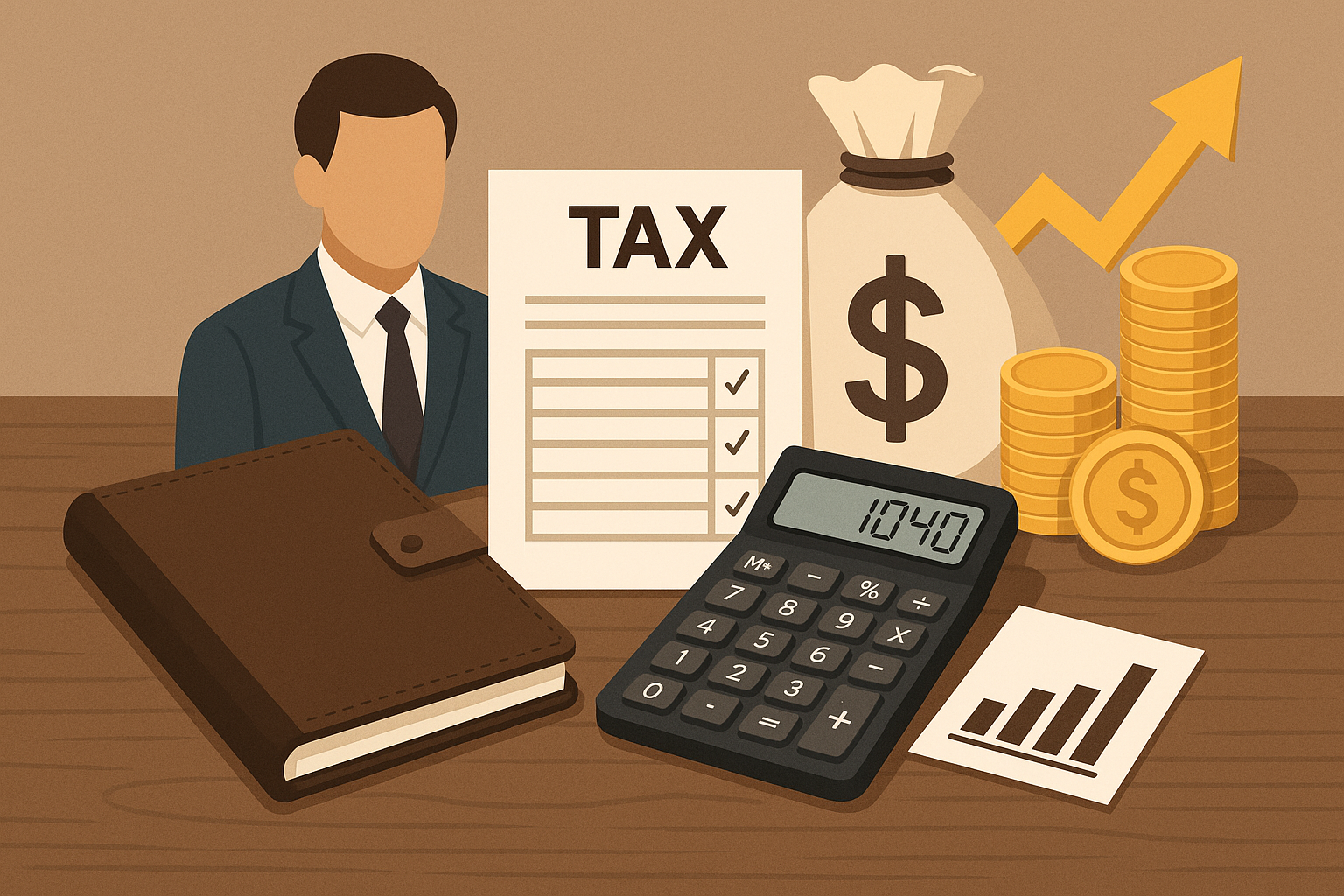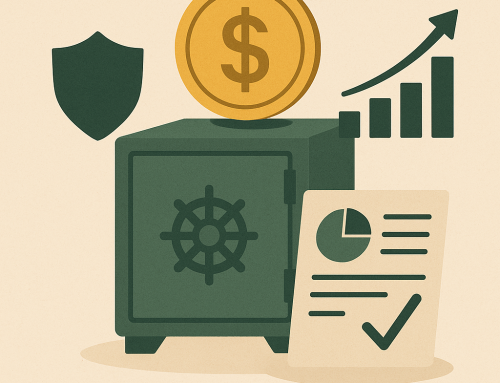
By Atfinance
Introduction
When most people think of a financial advisor, they picture someone who manages investments, recommends mutual funds, or helps plan for retirement. But one of the most valuable and often underestimated roles of a financial advisor is tax planning.
Tax planning isn’t just about filing your return on time or claiming a few deductions. It’s a long-term strategic process that impacts how much of your income and investments you get to keep. When done right—and ideally, with the guidance of a skilled advisor—it can save you thousands of dollars over your lifetime.
In this article, we’ll explore the full scope of tax planning with a financial advisor: what it involves, how it changes through your life, what red flags to avoid, and how local advisors (like those at AT Finance in Montreal and Laval) can offer a powerful advantage.
- What Is Tax Planning and Why It Matters
Tax planning is the proactive process of organizing your finances in a way that minimizes your tax liability legally and efficiently. Unlike tax preparation—which is reactive and happens once a year—tax planning is ongoing and forward-looking.
The goal is simple:
Reduce the amount of taxes you pay now and in the future, without compromising your financial objectives.
Tax planning touches every aspect of your finances:
- Investments
- Retirement accounts
- Income structure
- Real estate
- Business ownership
- Family dynamics
Even small decisions—like how you withdraw retirement funds or structure your investment portfolio—can have major tax consequences.
- The Role of a Financial Advisor in Tax Planning
A qualified financial advisor doesn’t just track markets—they help you navigate tax traps and create fiscal opportunities.
Your advisor should:
- Identify eligible deductions and credits.
- Coordinate with your accountant and notary.
- Optimize your portfolio to reduce capital gains taxes.
- Time contributions and withdrawals for maximum advantage.
- Help structure income (especially if you’re self-employed or retired).
This is particularly critical in Quebec and Canada, where complex layers of provincial and federal rules overlap with pension income, dividends, and capital gains.
With a financial advisor focused on tax strategy, you’re not just making money—you’re keeping more of it.
- Key Tax Planning Strategies a Financial Advisor Uses
Let’s break down the most common (and powerful) tax planning tactics advisors use with clients:
✅ Registered Account Optimization
- Maximize RRSP contributions when in high-income brackets.
- Prioritize TFSA when expecting tax-free growth.
- Utilize RESP and FHSA for education or first home purchases.
✅ Income Splitting
- Use spousal loans or pension income splitting.
- Allocate dividends to lower-income spouse or adult children.
- Use family trusts when appropriate.
✅ Tax-Loss Harvesting
- Sell losing assets to offset gains.
- Reinvest in similar assets to maintain allocation.
✅ Capital Gains Management
- Defer gains when near retirement or lower brackets.
- Use capital dividend accounts for corporations.
✅ Withdrawal Strategies
- Withdraw from RRSP before age 71 if income is low.
- Blend RRSP, TFSA, non-registered funds to stay under tax thresholds.
- Delay CPP/QPP or OAS to reduce clawbacks.
✅ Business Structures
- Incorporate to access small business deductions.
- Use holding companies or individual pension plans.
Your advisor’s role is to help prioritize and execute the right tactics based on your life stage and income.
- How Tax Planning Evolves with Life Stages
🧑🎓 Young Professionals (20–35)
- Focus on student loan interest credits.
- Begin contributing to TFSA and RRSP.
- Optimize employer stock plans or bonuses.
👨👩👧 Mid-Life Families (35–55)
- Maximize RESP and RRSP.
- Use income splitting.
- Invest in real estate or incorporate for tax deferral.
👵 Pre-Retirees (55–65)
- Strategic RRSP withdrawals before pension income begins.
- Begin pension income splitting strategies.
- Consider RRSP > FERR conversions.
🎓 Retirees (65+)
- Optimize FERR withdrawals.
- Coordinate OAS and GIS with other income sources.
- Use TFSA for flexible, tax-free income.
- Red Flags: Common Tax Mistakes Without a Financial Advisor
Many DIY investors or clients working only with accountants fall into these traps:
- Overcontributing to RRSP or TFSA, triggering penalties.
- Missing out on carry-forward deductions or credits.
- Selling investments in the wrong tax year, increasing tax bills.
- Failing to split pension income when eligible.
- Improper sequencing of withdrawals, leading to higher bracket taxation.
Having a financial advisor ensures these errors are caught before they cost you.
- Case Study: Real Tax Planning Results
Let’s take Marc and Chantal, a professional couple in Laval.
Before working with a financial advisor:
- RRSPs were maxed, but withdrawals weren’t planned.
- TFSA was underused.
- Chantal had unused spousal RRSP room.
- OAS and GIS eligibility were ignored.
After one year of tax planning with a financial advisor:
- $4,000+ in annual tax savings through income splitting
- Additional $15,000 in tax-sheltered growth through TFSA and FHSA
- Avoided OAS clawback via staged RRSP withdrawals
- Business income rerouted through a holding company
➡️ Result: increased after-tax wealth and peace of mind.
- How to Choose the Right Financial Advisor for Tax Planning
Not all advisors are created equal. For tax planning, look for:
🏅 Credentials
- CFP (Certified Financial Planner)
- CPA (Chartered Professional Accountant)
- Pl. Fin. (Quebec-specific Financial Planner designation)
💬 Communication
- Can explain strategies simply
- Offers bilingual support (especially important in Quebec)
🔍 Transparency
- Discloses how they’re paid: fee-based, commission, or hybrid
📈 Strategy-First
- Focused on net-after-tax results, not product sales
- Why Local Advisors Matter in Tax Planning
If you’re searching for “financial advisor tax planning near me”, location isn’t just about convenience. It’s about local knowledge:
- Quebec’s RRQ, OAS, TFSA, and tax credits differ from other provinces.
- Tax laws change at provincial and federal levels—advisors on the ground stay up to date.
- You may need connections to local notaries, accountants, or mortgage brokers.
Firms like AT Finance in Montreal and Laval offer this localized, proactive planning that national banks or robo-advisors simply can’t match.
- How AT Finance Integrates Tax Strategy Into Financial Planning
At AT Finance, tax planning isn’t an afterthought—it’s a core pillar of how we build your financial strategy.
We offer:
- Yearly tax impact reviews
- Retirement tax simulations
- Integration with your accountant or business
- Local knowledge of Quebec and Canada systems
- Bilingual, transparent communication
Whether you’re a busy professional, entrepreneur, or nearing retirement, our approach helps maximize your wealth while minimizing your taxes.
✅ Conclusion
A financial advisor can transform your relationship with taxes—not as a burden, but as an opportunity. With smart, proactive tax planning, you gain more control, more savings, and more peace of mind.
So the next time you’re considering who to trust with your money, don’t just ask: “What will they help me earn?”
Ask instead:
“How much of it will I get to keep?”
And if you’re looking for a trusted local advisor in Montreal or Laval—AT Finance is here to help.
❓ FAQ – 8 Common Questions About Financial Advisor Tax Planning
- What’s the difference between tax planning and tax filing?
Tax filing is reactive and once a year. Tax planning is proactive and continuous—focused on reducing future tax bills.
- Is tax planning only useful for high-income individuals?
No. Even middle-income families can benefit from deductions, income splitting, and smart account usage.
- How can a financial advisor reduce my annual taxes?
By optimizing contributions, timing withdrawals, managing capital gains, and coordinating with your accountant.
- Should my advisor also be a CPA?
Not necessarily. A CFP or Pl. Fin. with strong tax knowledge is usually enough, as long as they collaborate with a CPA.
- Can tax planning help me qualify for government benefits?
Yes. With proper income structuring, you may avoid OAS clawbacks, qualify for GIS, or receive additional credits.
- What is tax-loss harvesting and when should it be done?
Selling assets at a loss to offset gains—usually at year-end or during market downturns.
- How does tax planning work in retirement?
It involves sequencing RRSP/FERR, delaying CPP, and optimizing withdrawals to stay in lower brackets.
- How often should tax strategies be reviewed?
At least annually, and any time you experience a major life event (job change, inheritance, property sale, retirement).







